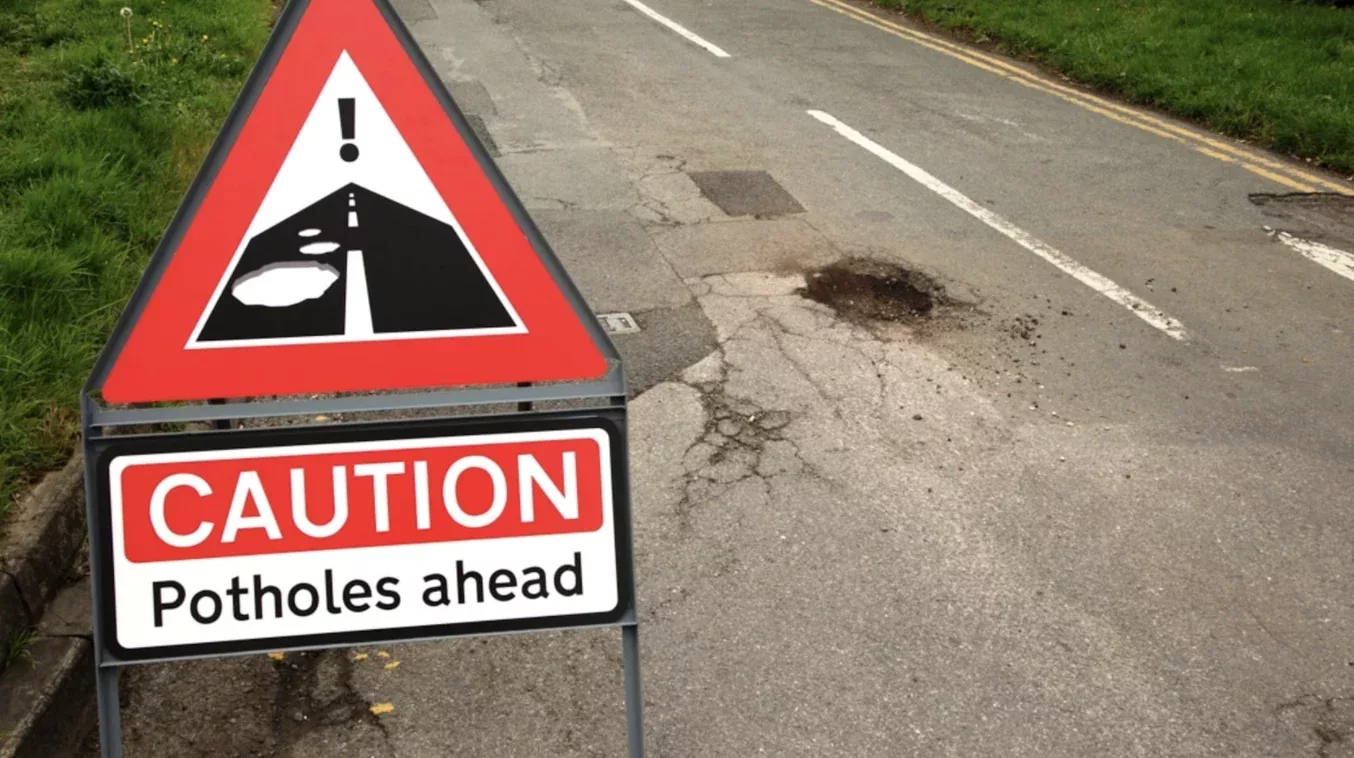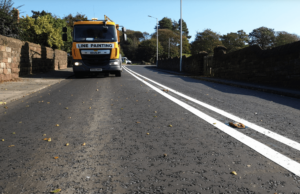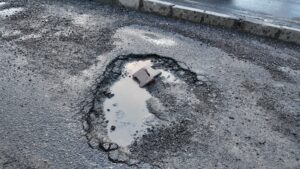Following the cold spell at the end of last year, and more intense periods of rain, more and more damage is being caused to Cambridgeshire roads. During that cold spell, road temperatures reached –9C, one of the lowest temperatures ever seen in Cambridgeshire, then it rains and together the freeze thaw cycle can lead to poor road conditions, said the council.
Cllr Alex Beckett, chair of the Highways and Transport Committee at Cambridgeshire County Council, said: “We are seeing large defects on our roads which is being compounded by the impact of climate change and extreme weather – particularly in the Fens. This is why we need more investment as we are not getting the funds from government to address these important highway issues.
“Soil affected roads are those roads where the stability of the road is affected by movement of the soils through wet and dry cycles as the seasons change. The soil the road sits on will become wet in the winter and dry out in the summer. Where the soils are very peaty and get very wet, they expand and when they dry out in the summer they shrink. In a ‘normal’ road, the road construction can flex enough for it not to be an issue. Where the expanding and contraction is a lot the road construction can’t flex enough so the road cracks and deforms.
“We saw some of the highest temperatures ever recorded in Cambridgeshire during the exceptional summer of 2022 and this has had a significant impact on these roads. We will continue to do what we can locally with the maintenance on our roads and footpaths.”
Cllr Neil Shailer, vice-chair of the Highways and Transport Committee at Cambridgeshire County Council, added: “In the past, we have spent millions of pounds repairing these roads. However, we are seeing that those roads are deteriorating a lot quicker than we would have expected. We are looking at locations across the county, such as Forty Foot, B1040, B1050 Shelford Road and many other roads to get an idea of the size of the problem and this work is being prioritised to be presented to the Highways and Transport Committee in March.
“Many of the soil affected roads would require major reconstruction which is likely to be a significant cost to the council and may only last up to five years. We are looking at innovative solutions and preparing for what we can do in the meantime, whilst making sure the roads are safe for the public. As part of this work, we are looking at both engineering and funding solutions, as well as working with neighbouring authorities about this regional issue, such as Norfolk, Peterborough and Suffolk, and the Department for Transport.”
The other issue is that many of the fen roads are on embankments so during the winter when it’s wet the soil pushes outwards – this leads to the road edges going with the soil hence the cracks and falling away on the road edges. When the soil dries out in the summer and the soil cracks the road edges crack as well. Over the years, measures have been carried out to help the road flex more and prevent the cracking. However, what we are seeing now is a combination of bad winters with more intense rainfall and drier and hotter summers.
The budget recommendations will be discussed by members at our Strategy and Resources Committee on Thursday (26 January) and will be decided on at Full Council as it sets the council’s budget on 7 February.
























